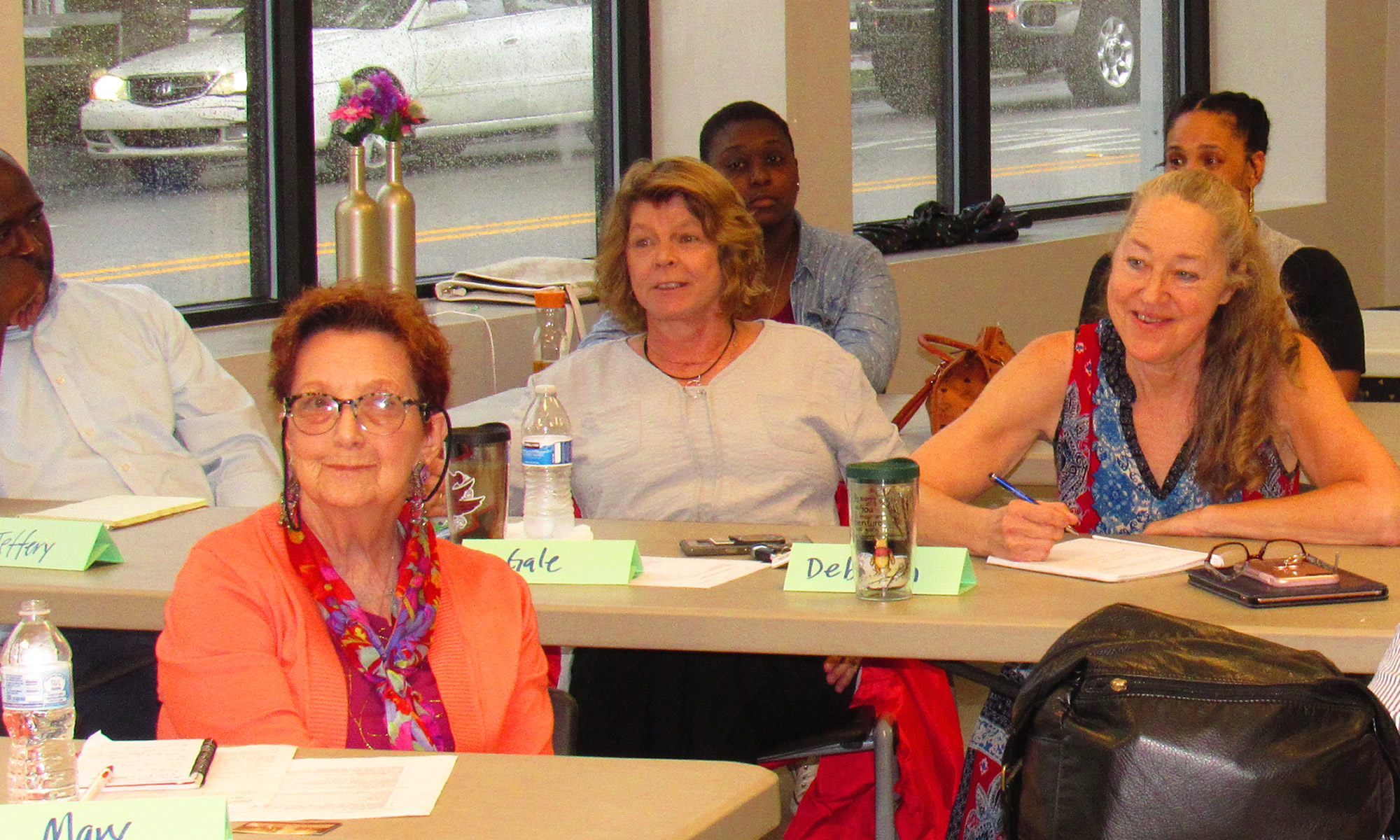NOVEMBER 2009 — Imagine an American South in which every child is safe and healthy, nurtured by a loving family, receives a high-quality education, graduates from high school and achieves a post-secondary education.
| Download a PDF of the full Agenda for a Better South.More on the conference |
Imagine an American South in which all adults have career opportunities in diverse industries with opportunities for advancement, live in reasonably-priced housing in safe communities, and have accessible and affordable health care.
Imagine an American South with a thriving business climate that supports entrepreneurial innovation, the growth of small businesses and corporate expansion.
Imagine a South whose citizens are fully engaged in the democratic process and turn out in large numbers to make their voices heard. And imagine an American South that preserves and respects its bountiful natural resources, while also leading the country in energy conservation and the efficient use of renewable resources.
Just imagine.
BACKGROUND
More than 20 Southern leaders and thinkers imagined these possibilities for a better South during a conference held at Davidson College in North Carolina in November 2009. The result? An eight-point Agenda for a Better South that showcases “measurable visions” for Southern leaders to act upon now to make significant changes in people’s lives as the region embraces the knowledge-based economy,
The Agenda doesn’t address every challenge for or opportunity offered in the American South. Rather, it seeks to outline major areas on which Southern leaders should concentrate leadership efforts now to have meaningful impacts to improve the quality of Southern lives. By using the priorities offered in this Agenda, Southern leaders can develop innovative solutions that will have rippling effects across generational regional problems such as poverty, health care and education.
The Agenda for a Better South is a bold vision of how things can be if Southern leaders grapple with major issues instead of continuing a narrow, short-term focus to policy alternatives that don’t have big impacts. Implementing the visions of the Agenda for a Better South won’t be easy, but imagine how much stronger the region would be if Southern leaders welcome the challenge to make major changes.
THE AGENDA FOR A BETTER SOUTH
The purpose of offering an Agenda for a Better South is to provide legislators and leaders with short, measurable visions that frame the serious policy issues in the South in the near term. During the development of the Agenda, participants felt some additional context would be helpful in framing each Agenda item. Below in bold is the Agenda Policy Goal; below each is additional information that seeks to provide context.
NURTURING ECONOMIC DEVELOPMENT AND EDUCATION
To compete in a 21st century global economy, each Southern state must increase its high school graduation rate and have 60 percent of native Southerners and new residents with post-secondary degrees, including associates’ degrees from technical colleges, by 2020.
More: The international benchmark for competitiveness is for a nation to have 55 percent of its adult citizens with at least an associate’s degree, according to a 2007 report by the National Council on Adult Literacy, “Mounting Pressures Facing the U.S. Workforce and the Increasing Need for Adult Education and Literacy.” The group at Davidson strongly believed that for the South to compete actively in the global economy, it was important for Southern states to set a goal of better than the international benchmark for post-secondary education, including associates’ degrees, advanced technical education, college degrees and post-graduate degrees.
BOOSTING WELLNESS
Each Southern state should increase life expectancy to levels on par with Canada.
More: The group found it important to compare life expectancy rates in the South to a neighboring country, rather than another American state. Life expectancy for children born in neighboring Canada in 2006 was 78.4 years for boys and 83 years for girls, according to Statistics Canada. According to the most recent figures by the U.S. Census, the highest life expectancy in any Southern state was Florida – 74.6 years for boys born in 2000 and 80.3 years for girls born in 2000. More info.
IMPROVING ENERGY EFFICIENCY
Each Southern state should develop a state energy plan that improves per capita energy efficiency by 20 percent in 2020.
More: In 2007, the European Union set a 20-20-20 energy policy that included the goal of improving energy efficiency by 20 percent by 2020. The group at Davidson discussed the importance of improving energy efficiency throughout the South, which tends to have lower rates but higher usage rates, because boosting efficiencies would allow the region to take significant strides in reducing greenhouse gases and its carbon footprint. Reduced electricity use, for example, likely would lessen the need for new coal-fired power plants.
REFORMING TAXES
Each Southern state should adopt or change tax structures by 2015 that expand the tax base while lowering the rate to help ensure revenue sources match or exceed the state’s growth rate in the state’s overall economy.
More: Group members agreed states should take serious looks at how they tax citizens to ensure that tax structures are fair, balanced and as progressive as possible. Among the ideas discussed were for states to conduct performance reviews to improve efficiencies and modernize government, and to review sales tax exemptions to ensure they made sense in a knowledge-based economy. The group, however, did not believe in providing prescriptive strategies to states. Rather, it encourage state leaders to develop modern tax structures that are based on having broad tax bases to spread the burden and ensure rates are as low as possible for states to operate effectively. Additionally, the group believed revenue sources should match or exceed a state’s growth rate to ensure that it had adequate capacity to operate.
INVESTING IN INFRASTRUCTURE
Each Southern state must invest 90 percent of its capital budget spending on priorities identified in its infrastructure capital planning process.
More: The group highlighted in discussion that “infrastructure” should be broadly based to include roads, rail, airports, water, wastewater, electricity and communication. In an effort to reduce development of different kinds of infrastructure separately, states should strive to link improvements to all types of infrastructure to achieve efficiency. Planning includes a needs assessment and identification of deferred maintenance. The planning process must be transparent and include regional cooperation. Each state should identify sources of revenue to meet its infrastructure needs.
CULTIVATING GOVERNANCE
Each Southern state should develop and implement a benchmark citizen trust survey by 2011. By 2015, each state’s levels of trust in state government should increase by 20 percent over the benchmark.
More: The group outlined how it was important for Southern states to work diligently to repair citizens’ trust in government by enhancing standards of professionalism, improving accountability, conducting performance reviews and strengthening ethics laws to improve citizens’ experiences, perceptions and participation in civic institutions. This set of values is not to be viewed as a means to shrink or grow government, but to restore people’s faith that the civilizing institution that they “own” is working on their behalf to deal with challenges, promote economic development and expand opportunities for a better quality of life.
ENSURING OPPORTUNITIES
Southern states should reduce disparities in the treatment and well-being of different groups to foster a more inclusive, creative, productive and prosperous South. By 2012, each Southern state should adopt measures to drive significant reduction in identified disparities within at least five major categories.
More: The group believed each Southern state should take a look in the mirror at social indicators it faces and take significant steps to reduce disparities. One state, for example, might look at its rate of low birthweight babies and other health measures, while another might focus on economic indicators. Whatever indicators are selected by a state, the likelihood is great that improvements on at least five indicators will generate improvements in several other areas too.
FOSTERING SAFE COMMUNITIES
Each Southern state should reduce the rates of violent crime to below the national average by 2020.
More: Violence is endemic in today’s South, just as it has been for centuries. Four of the nation’s top five states for violent crime are in the South: South Carolina (1), Tennessee (2), Florida (4) and Louisiana (5), according to the U.S. Census Bureau. To ensure communities are safer and people feel safer, Southern leaders need to take extraordinary steps to reduce violence in the South, which will improve the region’s quality of life.
PARTICIPANTS
More than two dozen Southern academics, elected officials, business leaders and thinkers met Nov. 6-8, 2009, at Davidson College for a conference, “Setting the Agenda for a Better South.”
While participants agreed on the general Agenda Priorities listed above and debated the wording of each, participation should not be construed to be an endorsement of any Agenda item by any individual participant. That being noted, participants included:
- Alabama: Publisher H. Brandt Ayers, Anniston; Prof. Stephen Black, Tuscaloosa; former U.S. Rep. Glen Browder, Birmingham; Editor Bob Davis, Anniston; and advocate Sarah Louise Smith, Birmingham.
- Arkansas: Prof. Jay Barth, Little Rock; advocate Richard Huddleston, Little Rock; and publisher Warwick Sabin, Little Rock.
- Florida: Nonprofit leader Laura Deaton, Tallahassee.
- Georgia: Editor Tom Baxter, Atlanta; Publisher Elliott Brack, Norcross; analyst Sarah Beth Gehl, Atlanta; Sen. Doug Stoner, Smyrna.
- Mississippi: Foundation leader Ivye Allen, Jackson; columnist Phil Hardwick, Jackson; analyst Ed Sivak, Jackson.
- North Carolina: Prof. Ferrel Guillory, Chapel Hill; businessman Bryant Kinney, Charlotte; consultant Pope “Mac” McCorkle, Chapel Hill; former councilman Bruce McMillen, Davidson; editor Mary Newsom, Charlotte; Prof. Mary Thornberry, Davidson.
- South Carolina: Prof. Adolphus Belk, Rock Hill; Better South Chairman Andy Brack, Charleston; Executive Michael Couick, Cayce; Better South Director Leo Fishman, Kiawah Island; Sen. Phil Leventis, Sumter; analyst Mike Shealy, Irmo.
- Other: Analytical writer Richard Greene, New York, New York.
MORE INFORMATION
- For more on the Davidson conference, visit: http://www.BetterSouth.org/archive/conference
- For a plethora of statistics about the South, please view our Conference Briefing Book online at: https://www.bettersouth.org/archive/pdfs/09.1013.briefing_final.pdf

